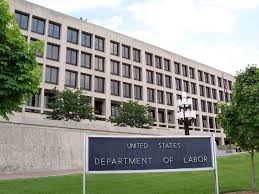 On February 3, President Trump issued a “Presidential Memorandum” that directs the Department of Labor to review the fiduciary rule that, in short, requires broker-dealers to provide retirement investors with services and products only in their best interest. I covered the DOL rule in a post here, and discussed the controversy behind it.
On February 3, President Trump issued a “Presidential Memorandum” that directs the Department of Labor to review the fiduciary rule that, in short, requires broker-dealers to provide retirement investors with services and products only in their best interest. I covered the DOL rule in a post here, and discussed the controversy behind it.
Trump does not have the authority to request a delay in the final deadline for the rule’s implementation on April 10, 2017. However, his instructions to the DOL and the scope therein prompted the Acting US Labor Secretary Ed Hugler to issue a statement expressing his intent to seek a delay to the implementation deadline while the DOL responds to Trump’s request. According to the memorandum:
“(a) You are directed to examine the Fiduciary Duty Rule to determine whether it may adversely affect the ability of Americans to gain access to retirement information and financial advice. (b) If you make an affirmative determination as to any of the considerations identified in subsection (a)-or if you conclude for any other reason after appropriate review that the Fiduciary Duty Rule is inconsistent with the priority identified earlier in this memorandum-then you shall publish for notice and comment a proposed rule rescinding or revising the Rule, as appropriate and as consistent with law.”
What Now?
While the DOL conducts its review (and keep in mind there is currently no confirmed Labor Secretary in place after Andrew Puzder removed himself from consideration in February), there is not much firms (or investors) can do but wait. However, considering that the DOL rule has been six years in the making and the finalized regulations were published in the spring of 2016, firms have been investing in the changes that would be required. Few are likely to reverse course now based on a “delay” and with potential legal battles ahead if the DOL indeed moves to strike the regulation.
For example, the rule did not restrict using commission-based products for investors provided that the fee charged was the same for all investors. This new share class, called T-shares, is already in place and may even supplant other share classes in the future as a best practice. In a recent article in The Wall Street Journal, Morgan Stanley and Bank of America plan to move forward with the changes they have already made. Sallie Krawcheck, CEO of Ellevest, has championed the fiduciary standard since 2007. She explains:
“And adopting a fiduciary standard was never even a point of debate for us; if we were going to commit ourselves to building Ellevest and working to close the “gender investing gap,” we were going to operate at this higher standard of care.”
Further, she emphasizes transparency and safeguarding of assets. But for now, Krawcheck and others admit that while the DOL rule hovers in limbo, the onus for determining if a product is suitable remains in the investor’s court. Yet, current trends within the financial industry itself may more closely align with Krawcheck’s vision. In the future, is it possible the “death” of the fiduciary rule may not only be irrelevant, but possibly unnecessary?





